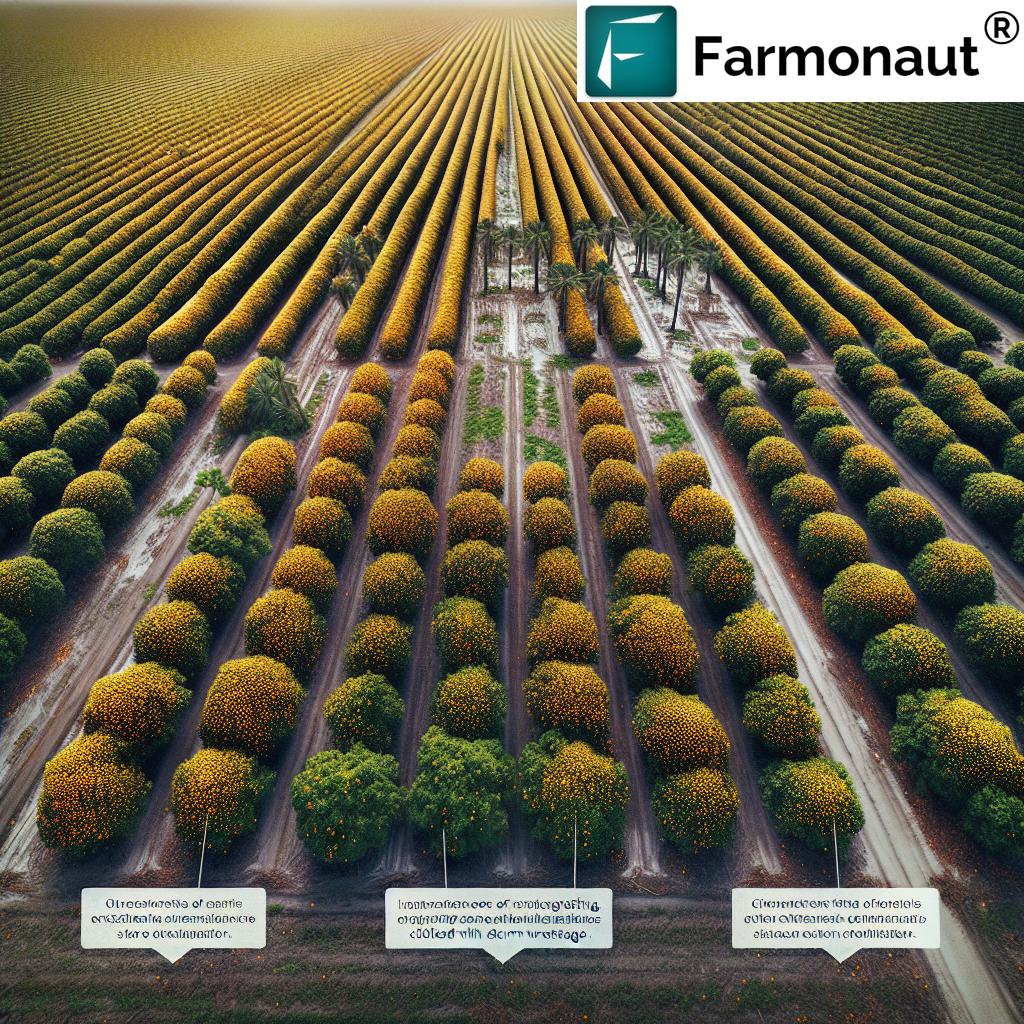Tennessee Farmland Preservation Act: 5 Powerful Ways to Protect Farms
“Over 69,000 Tennessee farms benefit from the Farmland Preservation Act, safeguarding agricultural land for future generations.”
Introduction: The Future of Tennessee Farmland Preservation
As Tennessee experiences remarkable economic growth and job creation, we recognize both the opportunities and challenges that come with progress. Our rural communities and hundreds of thousands of family farms are at the crossroads of change—balancing development with the urgent need for farmland preservation and agricultural land conservation. The passage of the Tennessee Farmland Preservation Act is a pivotal moment in defending the state’s agricultural heritage and ensuring our most vital lands remain protected for generations to come.
In this in-depth guide, we’ll explore how the Act enables voluntary farmland protection, secures permanent conservation easements, and empowers farmers. We’ll also examine the crucial role of technology—like the solutions from Farmonaut—in advancing sustainable farming and supporting the future of Tennessee agriculture. Working together, we can preserve agricultural lands, strengthen rural economies, and protect Tennessee’s legacy.
What is the Tennessee Farmland Preservation Act?
The Tennessee Farmland Preservation Act, recently signed into law in Nashville, Tennessee by Governor Bill Lee, represents a landmark commitment to preserving agricultural lands against urban sprawl, fragmentation, and unsustainable development. The bill, expertly championed by Senate Majority Leader Jack Johnson and House Majority Leader William Lamberth, ensures that:
- The state supports voluntary efforts by landowners to protect their farmland.
- Permanently protected conservation easements can be placed on eligible lands, stopping conversion to non-agricultural uses.
- A new grant fund provides critical support to farmers who voluntarily choose to participate.
- Family farms and rural communities are given long-term tools and incentives for sustainability.
By blending legal protection, accessible grants, and partnership with the agricultural community, this law lays a robust foundation for ongoing farmland preservation.
Why Farmland Preservation Matters for Tennessee
Our state’s agriculture isn’t just an economic engine—it’s a cultural cornerstone, an ecological treasure, and the backbone of daily life for millions of Tennesseans. Consider the numbers:
- Agriculture drives Tennessee’s economy: It’s the state’s #1 economic driver.
- Over 69,000 family farms currently operate in Tennessee.
- 10+ million acres of farmland need urgent protection from development pressures and environmental threats.
- Rural and farming communities depend on reliable land resources, now and for future generations.
As Nashville and neighboring counties continue to expand, protecting family farms and preserving agricultural land is essential—to food security, rural livelihoods, landscape beauty, and more.
“Tennessee’s Farmland Preservation Act helps conserve more than 10 million acres of farmland statewide.”
Tennessee Farmland Preservation Act: 5 Powerful Ways to Protect Farms
Let’s examine, step by step, how the new law enables five powerful preservation strategies. Together, these approaches help ensure that Tennessee farms, rural communities, and agricultural legacies are preserved for future generations.
1. Voluntary Conservation Easements — The Cornerstone of Preservation
At the heart of the Tennessee Farmland Preservation Act is the permanent conservation easement. This legal agreement, entered into voluntarily by the landowner, designates specific land for agricultural use only—forever. Here’s how it works:
- The farmer or landowner voluntarily chooses to participate.
- The conservation easement is attached to the deed—permanently protecting agricultural lands against future non-farming development.
- Ownership stays with the family or entity (the land can still be farmed, sold, or inherited—just not used for non-agricultural purposes).
- The state manages and assists with the legal, technical, and sometimes financial process.
This strategy gives family farms long-term security, ensures that Tennessee’s rural communities remain vibrant, and provides a voluntary, not compulsory, path for farmers to safeguard their livelihoods.
2. Grant Fund for Farmers Who Choose to Protect Farmland
A unique and innovative feature of the Act is the grant fund earmarked for farmers who choose to participate in farmland preservation programs. This support supercharges voluntary protection. Here’s why it matters:
- Funds help offset costs associated with establishing a conservation easement – like legal fees, surveys, and appraisal.
- It may also reward farmers for the option value they give up by foregoing future development.
- Support for rural communities means that landowners receive incentives to keep farming viable and sustainable.
- The grant fund for farmers is especially critical for small and midsize operations lacking the resources to manage the easement process independently.
This tool is designed to make voluntary farmland protection accessible and practical for all farmers, regardless of operation size.
3. Purchase of Development Rights (PDR): Turning Future Risks into Value
A robust companion to conservation easements is the Purchase of Development Rights (PDR) program. Here’s how this works under Tennessee’s law:
- The PDR program enables farmers to sell their right to develop their land for non-farm purposes (such as housing subdivisions or industrial sites), while keeping the land in private hands and in productive agriculture.
- Farmers receive fair compensation for forfeiting lucrative future development, backed by the new grant fund, instead of feeling forced to sell out to developers.
- The state, land trusts, or conservation organizations then hold the development rights in perpetuity, ensuring the acreage remains farmland forever.
This innovative mechanism provides both landowner flexibility and long-term land conservation benefits, enhancing the overall security of agricultural landscapes in Tennessee.
4. Agricultural District Designation: Protecting Communities at Scale
Besides individual farm-level protections, the Tennessee Farmland Preservation Act also includes strategic district-wide protections:
- Clusters of farms (‘agricultural districts’) can be designated, protecting large contiguous areas of farmland against piecemeal development or nuisance complaints.
- These districts support rural communities by creating shared resources, stronger legal standing, and enhanced eligibility for state incentives.
- Landowners can work together to preserve large landscapes—ensuring that community-based farming traditions endure and economies of scale make agricultural production strong.
This approach not only protects individual properties, but also the broader social, economic, and ecological health of Tennessee’s rural regions.
5. State Support & Incentives for Rural Communities
Through the General Assembly’s partnership, the Act promises more than just preservation; it creates a framework for supporting rural communities and ensuring that tennesseans thrive. Key incentives and support mechanisms include:
- Technical assistance to help landowners navigate easement and PDR processes
- Education on sustainable farming, soil health, and long-term productivity
- State-backed connections with trusted conservation professionals and trusted appraisal services
- Policy stability—landowners know the rules won’t suddenly change, making long-term planning stable and reliable
These elements make Tennessee’s program a model for agricultural land conservation and the ongoing vitality of rural farming life.
Comparison Table of Farmland Preservation Methods in Tennessee
| Preservation Method | Description | Eligibility Criteria | Estimated Protected Acres (2023) | Voluntary Participation Rate (%) | Key Benefits |
|---|---|---|---|---|---|
| Conservation Easements | Voluntary, permanent legal agreements preserving farmland for agriculture | Agricultural landowners; suitable agricultural lands per state criteria; willing to forego development | 420,000+ | 18–22% | Permanent protection; continued private ownership; flexible land use for farming |
| Purchase of Development Rights (PDR) | Landowners sell the right to develop to the state in exchange for compensation | Commercial/viable farmland; clear title; willingness to restrict future non-farm development | 135,000+ | 10–15% | Fair compensation; flexibility; permanent farmland conservation |
| Agricultural District Designation | Groups of contiguous farmland properties protected as a district | Multiple adjacent farms; agreement among landowners; district-wide criteria | 250,000+ | 35–40% | Community protection; coordinated action; collective bargaining |
| Alternative Agricultural Protection | Land trust involvement, rolling term easements, other flexible programs | Varies by program; often less permanent or flexible on renewals | 59,000+ | 9–12% | Greater flexibility; less permanent; can adapt to changes over time |
*Figures are rounded estimates for 2023. Actual participation and acreage may vary. All methods rely on voluntary engagement, consistent with Tennessee’s preservation approach.
How Farmonaut Technologies Empower Tennessee’s Farmland Preservation
The effectiveness of the Tennessee Farmland Preservation Act is greatly enhanced by the use of cutting-edge technology platforms that make land ownership, monitoring, and conservation more transparent and accessible. That’s where Farmonaut steps in—helping farmers, government agencies, and rural communities preserve agricultural lands for the future.
Satellite Imaging for Voluntary Farmland Protection
With the rise of satellite-based crop health monitoring, we can observe real-time data on soil moisture, vegetation vitality (NDVI), and other key agricultural metrics. Farmonaut’s platform helps farmers:
- Track crop health for informed resource and irrigation decisions
- Quickly identify areas vulnerable to overgrazing, erosion or potential non-agricultural encroachment
- Meet eligibility or compliance standards for permanent conservation easements
Discover more about Precision Agriculture with Farmonaut’s Large-Scale Farm Management tools—empowering decision-makers to monitor hundreds of acres at once, track farm boundaries, and support sustainable practices.
AI and Blockchain: Ensuring Transparency & Long-Term Value
Farmonaut’s Jeevn AI Advisory System provides:
- Real-time, farm-specific recommendations to improve both yields and land health
- Weather and pest advisory updates, helping maintain the integrity of conserved lands
- Compliance recommendations for ongoing farmland preservation obligations
In addition, Farmonaut’s blockchain-based traceability solution helps verify that agricultural land, crops, and food products are coming from protected farms. This enhances consumer trust and market value for Tennessee-grown products.
Resource and Fleet Management to Sustain Protected Lands
Operating a protected farm efficiently is crucial to its survival. Farmonaut provides fleet management tools that help keep farm equipment and resources running smoothly across large areas, making sustainable practices easier.
For agriculture-based businesses and cooperatives, these technologies ensure that protected lands remain not just preserved, but productive for our communities and generations to come.
Measuring Environmental Impact with Carbon Footprinting
A key benefit of long-term farmland conservation is the potential to reduce our carbon footprint and help Tennessee reach critical environmental goals. With Farmonaut’s carbon footprint tracking, farmers, agribusinesses, and rural stakeholders can:
- Monitor emissions in real time from agricultural activity
- Quantify sustainability improvements year-over-year
- Strengthen grant applications or landuse reports under the new preservation act
This commitment is vital to giving our protected agricultural lands the recognition and funding they deserve—while securing a healthier planet for future Tennesseans.
Streamlining Access to Farm Loans & Insurance
Access to fair and transparent financing is critical to the survival of family farms. Farmonaut’s crop loan and insurance verification service allows farmers to use satellite-verified data for loan eligibility, ensuring they can invest in conservation without the risk of fraud or bureaucratic delays.
Affordable Farmonaut Subscription Plans
Make the most of your protected farmland with Farmonaut’s affordable, scalable subscription options. Explore features tailored for individual owners, cooperatives, and government bodies below.
Download & Explore: Farmonaut Farm Management Platform
To support farmers and rural communities in Tennessee and beyond, Farmonaut offers truly accessible tools for real-time farm management—available on Web App, Android, and iOS.
Are you a developer or agritech business looking to build on leading satellite and weather data? Integrate Farmonaut’s powerful farm monitoring API or dive into the API Developer Documentation for custom solutions.
Frequently Asked Questions: Tennessee Farmland Preservation Act
What does the Tennessee Farmland Preservation Act actually do?
The act enables voluntary protection of farmland through permanent conservation easements, establishes a grant fund for farmers participating in preservation, supports Purchase of Development Rights (PDR), and encourages district-wide agricultural protections. Its goal is to ensure farms are preserved for future generations.
Is participation in farmland protection mandatory?
No. All methods, including conservation easements, are voluntary—farmers and landowners choose if and when they participate.
How does a conservation easement affect my property?
You and future owners retain private ownership, use the land for agriculture, and may sell or pass it on. However, you agree not to convert it to non-farm uses. This restriction is permanent, per the Act.
Will I be compensated for preserving my farmland?
Yes—various grants and PDR programs provide compensation or funds to cover legal, technical, and opportunity costs.
Can I use technology to monitor and prove eligibility for preservation programs?
Absolutely. Platforms like Farmonaut make it easier to document land use, monitor land health, and satisfy preservation criteria efficiently.
Does Farmonaut help with land sales or government paperwork?
Farmonaut is not a sales, marketplace, or regulatory agency. We provide advanced monitoring, analytics, and traceability tools to empower your farm management and reporting.
How can policymakers or communities scale these protections?
Through coordinated use of agricultural districts, community education, and leveraging data platforms for large-scale oversight and planning.
Conclusion: Protecting Tennessee’s Farms for Generations to Come
The Tennessee Farmland Preservation Act marks a historic step forward in securing the future of Tennessee agriculture. By prioritizing voluntary farmland protection, enabling permanent conservation easements, offering support for rural communities, and opening new funding doors for farmers, this law ensures that our most precious natural and economic resource—agricultural land—remains at the heart of Tennessee communities.
With the backing of advanced technology platforms like Farmonaut, our farmers, policymakers, and rural citizens are empowered as never before to preserve agricultural lands, maintain sustainable food systems, and allow Tennessee to not only grow, but thrive for many generations to come.
Explore Farmonaut’s platform today, support your rural community, and play your part in protecting Tennessee’s farmland legacy.














